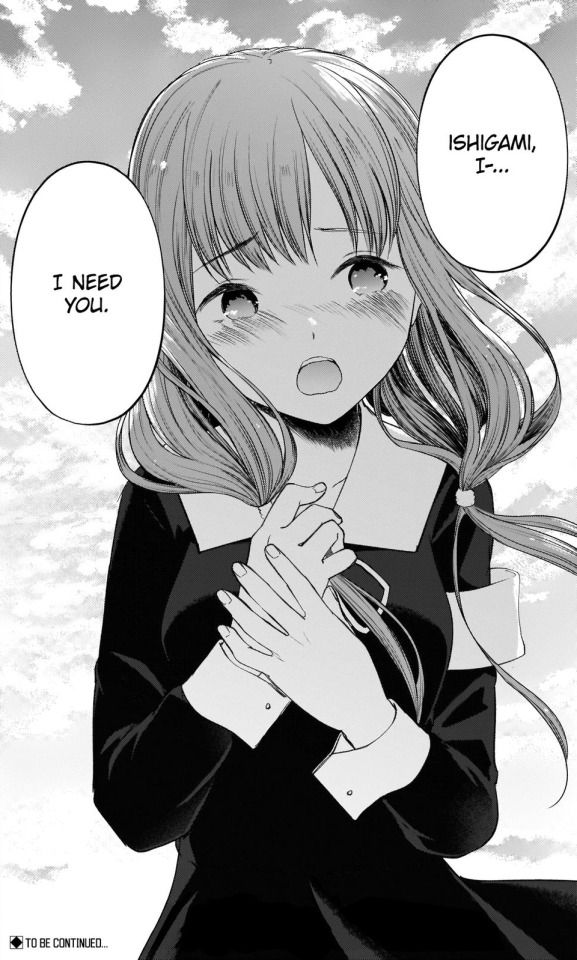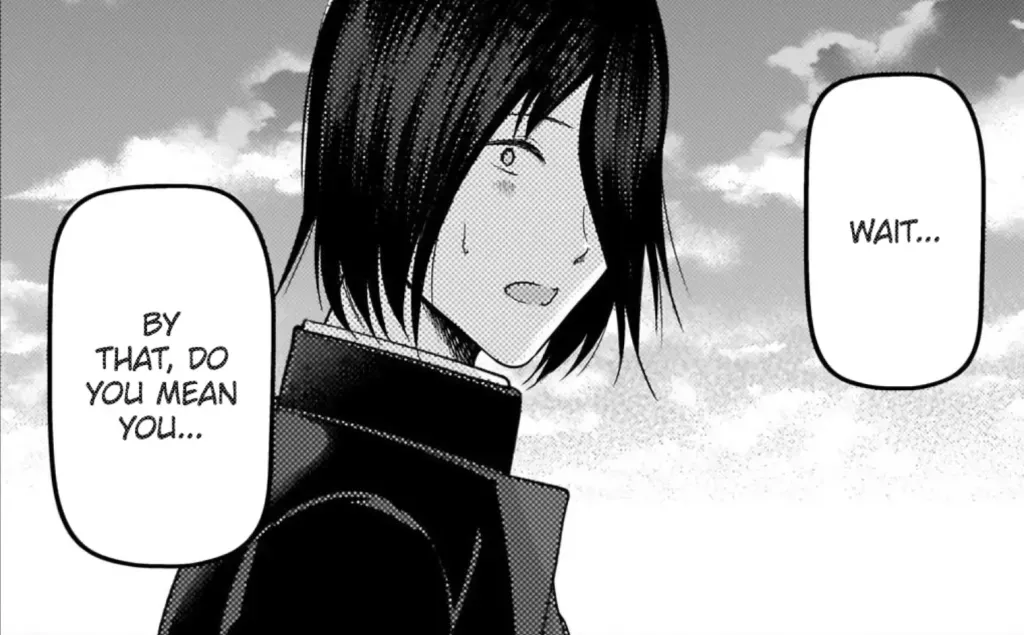Kaguya-sama: Love is War - The Philosophy of Love
Humans play the ideal version of themselves, keep their displeasure and deceive others to be loved. Therefore, those in love live in terror.
Prologue: Humans play the ideal version of themselves, keep their displeasure and deceive others to be loved. Therefore, those in love live in terror. Without certainty, the one hiding their true self must convey their feelings in words to someone who’s also hiding their true self.

Kaguya-sama: Love is War is a romantic comedy about two high school students who are too prideful to confess to each other that they are willing to go to great greats to make the other confess first. It seems absurd that the two are fighting over each other for such a trivial matter. In reality, Kaguya-sama teaches us many lessons about what it means to be in a relationship and love oneself.
The First Kiss Never Ends
Labeling a relationship as “going out” and labeling each other as “boyfriend” and “girlfriend” creates social pressure to stay with each other even after the initial feelings have faded. In other words, a contract is created: the establishment of obligations that each party has to the other party.
Labeling a relationship sets that relationship in stone, as if it is something static when normal relationships are anything but. It is a denial of change, so when that change happens, you are obligated to ignore it, even if it means putting your own feelings second.
In a world with labels, the only perceived way to “change the nature of a relationship” is to “change that relationship’s label.” However, labels and relationships are not one and the same. Normal relationships are a lot more fluid and ever-changing, but putting a label on it makes the two people in that relationship view the relationship as being fixed, limiting possibilities for change. The only true way to change the nature of a relationship is to change the relationship itself. Labels are just definition-limiting accessories.
Real love is made shallow by confessions. Real love is the relationship itself, not the label you give that relationship. Saying you love someone is no replacement for actually loving someone. That’s why you shouldn’t label your relationships. Because doing so will force a ‘societal definition’ on that relationship, oversimplifying it, limiting its possibilities, and forcing it to change in an unnatural way to match that definition.
The True Love is War
Be True to Yourself, If Not to Others
Life Lessons from Kaguya-sama: Love is War
- Both lovers masks their true selves to make them lovable to the other parter, but true love comes from accepting who we are.
- Everyone has an emotional breaking point (even the most rational people)
- Even the most reputable, respected, popular people have something missing
- Everyone has multiple personalities. We are an embodiment of all of them.
- Ultimately, we all have the same problems and we should take the chance to speak up or the other person never knows.
The Psychology Behind IshiMiko
Ishigami Yu is one of the deurotagonists of Love Is War, and is commonly referred to as one of the most lovable characters due to how mangaka Aka Akasaka characterises his attitude towards life. He is often showcased to be an individual who doesn’t need other people’s recognition nor acceptance in order to be a good man, yet his honourable facade does eventually crumble. After realising that the advances of his long- time crush were done only out of pity, he attempts to injure himself, leaving readers on the edge of their seats — how could a character who has done nothing but attempt to help others from the shadows be met with such a devastating fate?
Akasaka responds with a scene of childhood friend and secondary love interest Miko Iino taking the blunt of Ishigami’s fall down the stairs to save him from harming himself, rekindling the light of hope for humanity that Ishigami had once used as motivation for himself. The author’s world is revealed to be less miserable than one may think, blending reality with optimism in relatively happy ending for the two characters, who grow closer from this incident.

Despite what the lesser-versed reader may think, Ishigami remains a character who is also critically and relentlessly despised by many other characters in the story due to a misunderstanding of his past. Having encountered a classmate being cheated on in her middle school years, he beats up the perpetrator without letting the world know why; Ishigami plays the role of the villain in order to protect a person whose life he could have chosen to never get involved with. He remains true to himself, sticking to a strict moral compass without making a big show of it.This is why his character is particularly powerful, as we are able to see that this type of personality is not only admirable, but incredibly difficult to put on as a facade to others. Love Is War reminds us of how keeping true to your beliefs may be difficult, and that not everybody will respect nor accept your for these traits. Nevertheless, it’s not all doom and gloom, for after every storm comes a rainbow — perfectly exemplified in the relationship that he begins to build with Iino upon realising that there are people in his world who recognise his efforts and believe in benevolence.


Everybody Expresses Themselves Differently
Romantic intrigue commonly dominates the realm of the “love” genre; people often forget that other forms of love have an equally strong level of emotional impact. The brotherhood between men on the battlefield, the unfaltering affection between parent and child — the compassion that people feel for each other in these situations aren’t always addressed to the same depth as romance.
